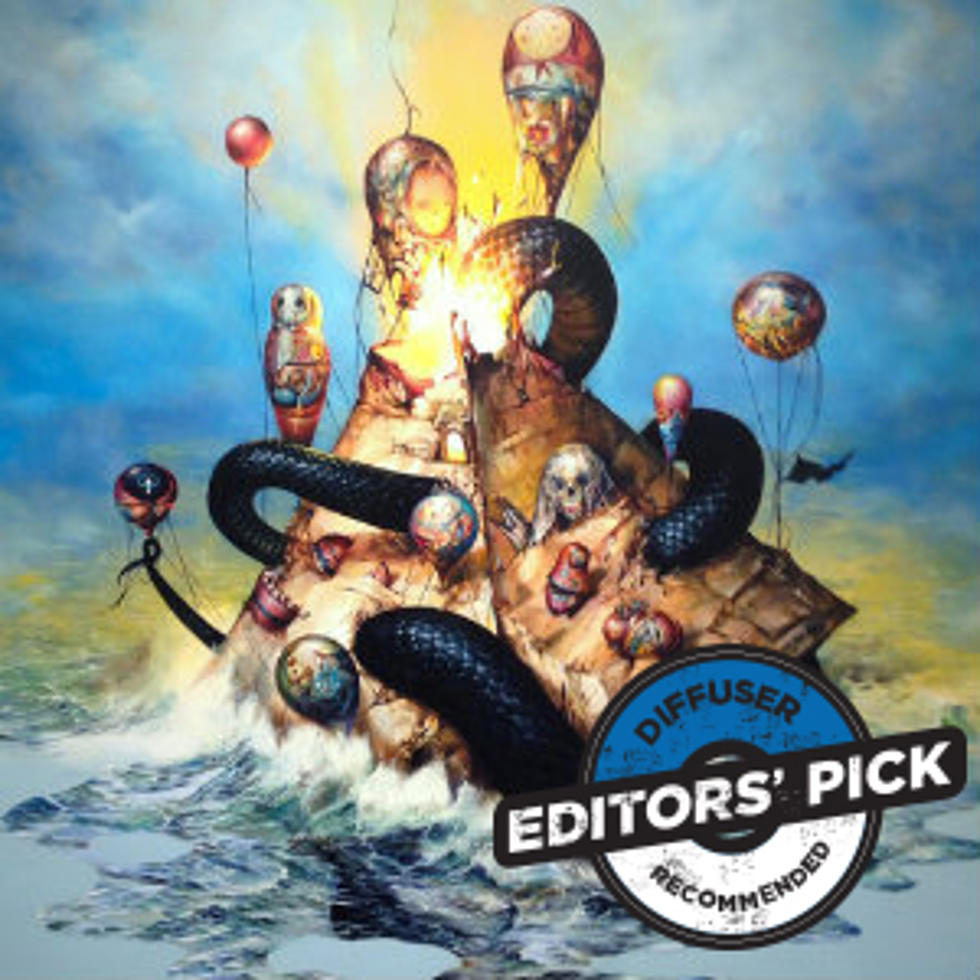
Circa Survive, ‘Descensus’ – Album Review
Circa Survive are a band forged in self-destruction. It was a little more than a decade ago when Anthony Green -- the magnetic but emotionally embattled frontman then screaming for burgeoning SoCal post-hardcore unit Saosin -- abruptly left the band (literally during an airport layover in Phoenix) in order to unceremoniously return home to Philadelphia. Instead of remaining with a promising group that -- while on the cusp of signing to a major label -- didn’t speak completely to Green’s creative vision, he reunited with old friend and guitarist Colin Frangicetto to assemble the lineup for Circa Survive: an art-driven, prog and post-rock inspired outfit revolving around the undeniable charisma and preternatural, octave-shattering vocals of Green.
After releasing two albums (2005’s ‘Juturna’ and 2007’s ‘On Letting Go’) on indie Equal Vision that established their formidable presence and spawned countless imitators, Circa signed to major label Atlantic for 2010’s finely tuned, ‘Blue Sky Noise.’ But instead of being forced into renegotiating their contract for the follow-up, they walked away to produce and release 2012’s epic ‘Violent Waves’ entirely on their own. Throughout it all, however, all five members of the band openly strived to fully realize their own perceptions of their potential in an attempt to deliver the quintessential Circa Survive album they knew they were capable of creating.
But when talent flows through you the way it does these guys, sometimes too much thinking gets in the way.
With no corporate suits to answer to (they signed a one-album deal with Sumerian long after the fact) and no solid plans to definitely release what they laid down, the band went into the studio last spring with Will Yip (Braid, Title Fight), equipped with barely a note of music prepared -- completely unheard of for such a notoriously hyper-prepared team. But entirely unfettered from expectations and inspired by Yip’s energy, the group churned out song after song in a creative flurry spanning just a few weeks, and the final product might just be the album Circa fans -- and Circa themselves -- have long been waiting for.
Both conceptually looser and musically tighter than anything they've done before, 'Descensus' is the culmination of a decade's worth of experimentation and the most aesthetically diverse and brilliantly realized effort of Circa Survive's already impressive career. Kicking off with the raucous lead single, 'Schema,' which is potentially the heaviest song they've ever written, 'Descensus' starts with a sonic punch in the teeth in stark contrast to 'Birth of the Economic Hitman,' the sprawling, seven-minute opener on 'Violent Waves.'
From there, the nine other tracks on the album (minus maybe the 54-second instrumental 'Who Will Lie With Me Now') delve into disparate styles and approaches Circa have never touched. 'Child of the Desert' (referencing the 'Blue Sky Noise' song 'Through the Desert Alone') is almost buoyant, floating atop an odd time signature that stops on a dime with a minute left for a grinding groove. 'Phantom' is built upon a jazz foundation complete with smooth organ backing and the title track evolves into an electric amalgam of Pink Floyd guitar theatrics and quasi-metalcore chugging.
Green's lyrics throughout feel just as revelatory as ever, but much more immediate and tangible when compared to his typically ambiguous subject matter. On 'Nesting Dolls,' an atmospheric and achingly personal ballad written during a particularly dark period in his life, Green posits, "You shouldn't stay / we'll never change / and I can't recognize you at all," before meandering across the repeated line, "I don't wanna feel like this ever ever ever ever ever again." While, on paper, it might evoke a certain Taylor Swift-ness, it's delivered with gut-wrenching honesty and wildly out of character for his work with Circa -- much more akin to the accessible lyrical approach he's taken on his three solo albums.
In the end, 'Descensus' is an album that feels inherently cohesive and intrinsically consistent despite the fact that no two songs (or not even two parts of the same song) sound alike. Unlike Circa's earlier albums which had scattered moments that could veer into mild redundancy, the record grabs you from its first second and never relents.
The band sounds far more fearless than they ever have on record, providing the album with the sort of energy and recklessness their live shows boast -- and hopefully encouraging them to follow their instincts even further from what's safe.
More From Diffuser.fm









